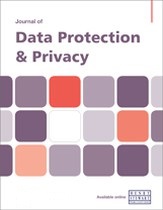Revisiting personal data : Ownership theories and comparative legal perspectives from Europe, Indonesia and the United States
Abstract
The growing importance of personal data in the digital era has sparked global debates on whether it should be treated as property or a fundamental right. Different jurisdictions adopt varying approaches to personal data ownership, resulting in significant legal, regulatory and operational challenges. The US, through the California Consumer Privacy Act (CCPA), treats personal data as a tradable asset, allowing businesses to monetise it with limited consumer rights. In contrast, the European Union (EU) General Data Protect Regulation (GDPR) frames personal data as an inalienable right, prioritising individual control and privacy. Indonesia’s Personal Data Protection Law (PDP Law) takes a hybrid approach, recognising personal data as a fundamental right while permitting regulated cross-border transfers. This study employs a qualitative and comparative legal analysis to examine the implications of these differing approaches. It explores property ownership theories, such as first occupancy, labour, utility, libertarian and personality theories, to assess their applicability to personal data. The findings suggest that traditional property concepts are insufficient to address the complexities of personal data, as it is inherently tied to individual identity and autonomy. Instead of being commodified, personal data requires robust legal protections to safeguard privacy and individual rights. The study highlights key challenges, including regulatory fragmentation, compliance complexities and consumer protection disparities. It underscores the need for greater harmonisation of data protection laws and stronger international cooperation to balance economic interests with the fundamental right to privacy. The insights provided aim to inform policy makers, businesses and legal practitioners in developing ethical and effective data governance frameworks.
The full article is available to subscribers to the journal.
Author's Biography
Diah Pawestri Maharani , SH, MH, is an Assistant Professor at the Faculty of Law, Universitas Brawijaya (UB), Malang, Indonesia. Her primary academic focus lies in the intersection of law and technology, where she explores contemporary legal challenges in the digital era. As a dedicated researcher, she serves as the Head of the Research Division at the Research and Community Service Body, Faculty of Law, UB, leading various initiatives that integrate scholarly inquiry with community engagement. Currently pursuing her doctoral degree at the Faculty of Law, Universitas Brawijaya, Diah has a keen interest in the legal frameworks governing data protection and other technology-related issues. Her research spans diverse aspects of the interaction between law and technology, emphasising the need for robust legal instruments to address the challenges of the rapidly evolving digital landscape. Diah’s commitment to advancing sociolegal studies is evident in her active involvement in collaborative research projects, including initiatives that prioritise sustainable development and governance, ensuring the alignment of legal principles with societal and technological advancements.
Afifah Kusumadara Prof Afifah Kusumadara, SH, LLM, SJD, is a distinguished Professor at the Faculty of Law, Universitas Brawijaya (UB), specialising in Indonesian private international law. Her expertise encompasses the complexities of cross-border legal issues and their implications for Indonesia’s legal system. Afifah plays a pivotal role as one of the legal drafters of the Draft Bill on Indonesian Private International Law (RUU Hukum Perdata Internasional Indonesia), contributing her vast knowledge to the development of a comprehensive legal framework in this field. In addition to her academic and drafting responsibilities, Afifah serves as the head of the doctoral programme in law at the Faculty of Law, Universitas Brawijaya. Under her leadership, the programme continues to foster advanced legal scholarship and produce impactful research. Her dedication to both academia and legal reform has solidified her reputation as a leading authority in Indonesian private international law.
Hanif Nur Widhiyanti Dr Hanif Nur Widhiyanti, SH, MHum, is a prominent Associate Professor at the Faculty of Law, Universitas Brawijaya (UB). Her expertise lies in the fields of international law, international trade law and competition law, where she has made significant contributions through her teaching, research and publications. Hanif is the author of several notable books that reflect her deep understanding and critical analysis of legal issues in the global economic and international relations arena. Her works include Bayang-Bayang Kartel dalam Hukum Persaingan Usaha (The Shadows of Cartels in Competition Law), UB Press, 2022; Hukum Perdagangan Internasional (International Trade Law), UB Press, 2021; Hukum Ekonomi Internasional (International Economic Law), UB Press, 2020; Hukum Internasional dalam Dinamika Hubungan Internasional (International Law in the Dynamics of International Relations), UB Press, 2018. Her scholarship focuses on addressing legal challenges arising from globalisation, international trade and economic competition. Through her extensive writing and research, Hanif has contributed significantly to advancing the understanding and application of international and economic law in Indonesia. Her books have become essential references for students, academics and practitioners alike, showcasing her dedication to developing legal knowledge that is both practical and impactful.
Reka Dewantara Dr Reka Dewantara, SH, MH, is an Associate Professor, Universitas Brawijaya (UB), Indonesia, where he plays a key role in academic leadership and the development of the faculty’s programmes. His expertise spans multiple areas of law, including civil law, economic and banking law, and justice and law enforcement. As a dedicated scholar, Reka focuses his research on pressing legal issues related to justice, law enforcement and the evolving dynamics of civil and economic law in Indonesia. His work is characterised by a commitment to exploring how legal frameworks can promote fairness and accountability, particularly within the realms of economics and banking. With his broad knowledge and leadership in the legal field, Reka is instrumental in shaping future legal professionals and advancing the study and application of law in Indonesia. His contributions have solidified his reputation as a respected academic and leader in the Faculty of Law at Universitas Brawijaya.
